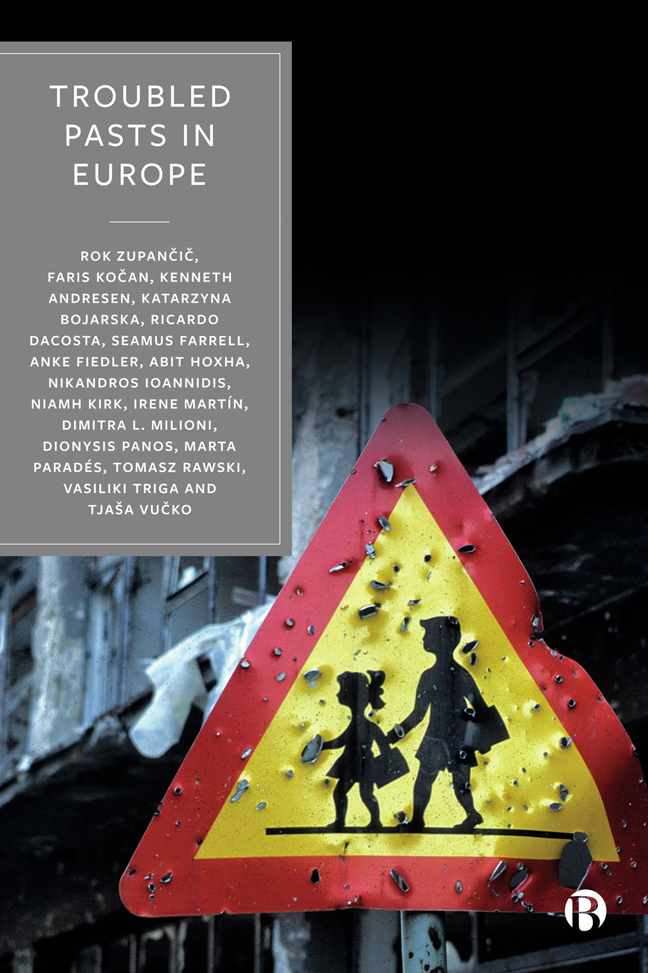 Troubled Pasts in Europe
Troubled Pasts in Europe 11 - Conclusion
Published online by Cambridge University Press: 25 January 2024
Summary
The project RePAST investigated how seven European societies – the EU member states and the countries aspiring to join the EU – deal with their troubled pasts today, with a view on the impact of conflicting discourses on European integration. It also explored what is the role of the EU in this regard. After an intensive field research (2018–21) in each of the societies, of which scientific results are available on the project website, the consortium attempted to offer several practical ideas how a few steps towards overcoming the troubled pasts could be taken.
The added value of the project RePAST was that it attempted to disentangle the troubled pasts in four interrelated domains of social life: history, media, politics, and arts and culture. Drawing on earlier research, the main aim of the book is to offer meaningful and actionable policy recommendations, tailored to the needs of interested stakeholders at both the national and the EU level (policy makers, researchers, journalists, students, citizens). The policy recommendations should be read in an integrative manner and should be implemented as comprehensively as possible despite the authors acknowledging the fact that this would be difficult. Regardless of that, even a few small steps – implementing or even thoroughly considering a few of the recommendations – would be an important policy-related impact of the project.
In this concluding chapter, we do the following: first, we summarize the gist of policy recommendations and look for similarities across case studies; second, we pinpoint and discuss the specificities of each case study's troubled pasts. These policy recommendations, which could also be understood as strategies for transformational policy reforms in four investigated areas, are developed to reflect upon the possible strategies for dealing with the troubled pasts of different countries. In doing so, the recommendations and strategies proposed are grounded on the analysis of mnemonical and historical trajectories to understand how different types of discourses (for example, oral and official history, journalistic-led discourses, political and civil society-led discourses) on past conflicts inform the present and how those discourses are reproduced, negotiated and (re)appropriated amidst the European integration process and an ever closer Union among peoples.
Since there are diverse types of troubled pasts in Europe, the book followed the typology of troubled pasts along the four criteria, namely historical factor, time span of the EU membership, topical factor and risk factor.
- Type
- Chapter
- Information
- Troubled Pasts in EuropeStrategies and Recommendations for Overcoming Challenging Historic Legacies, pp. 164 - 170Publisher: Bristol University PressPrint publication year: 2023
